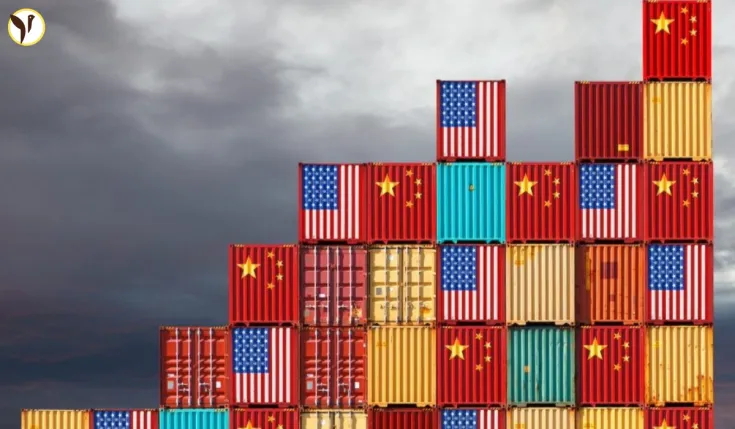US Market Today: Navigating the Trade War Tempest
Global markets are reeling from President Trump's sweeping tariffs, causing a $10 trillion wipeout in global equities and sparking fears of a recession. While Asian markets saw a rebound today, fueled by hopes of prioritized trade talks with Japan, the situation remains incredibly volatile. Uncertainty reigns supreme.
A Rollercoaster Ride
Monday saw record intraday swings in the Dow Jones, with the S&P 500 briefly entering bear market territory. Futures markets are showing signs of a rebound, but experts remain cautious. Tim Waterer, chief market analyst at KCM Trade, notes that "it's too early to say that we have turned the corner," given Trump's ongoing threats of additional tariffs on China. This unpredictability is keeping investors on edge.
Japan: A Potential Lifeline?
Japan's stock market soared over 5%, driven by the news that it will receive priority in bilateral trade talks with the US. This development offers a potential beacon of hope amidst the storm, suggesting that some nations may be able to navigate the tariff turmoil through negotiations. However, the lack of clarity regarding what concessions Trump seeks in exchange for tariff reductions leaves much to be desired.
China's Defiant Stance
China has vehemently condemned the US tariff threats, vowing to retaliate and fight "to the end." This escalating conflict further fuels global market anxieties, as the world's two largest economies remain locked in a high-stakes trade war. The uncertainty is dampening global demand, as evidenced by falling commodity prices.
The Road Ahead: Uncertainty Persists
While some market sectors show signs of recovery, the overall outlook remains clouded by uncertainty. President Trump's refusal to pause tariffs and his unpredictable pronouncements continue to create significant market volatility. Investors are left to grapple with the potential for further escalation and its impact on global economic growth. The situation demands close monitoring and careful consideration for both long-term and short-term investment strategies. Stay informed and consult with financial advisors before making any significant investment decisions.






